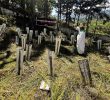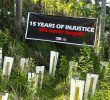Section 2 Respect for Civil Liberties, Including:
a. Freedom of Speech and Press
The law provides for freedom of speech and of the press, and, except for a few instances during a week-long imposition of a state of national emergency, the government generally respected these rights in practice.
The government owned several television and radio stations; however, most print and electronic media were privately owned. The media were active and expressed a wide variety of views without restriction. Broadcast and print media were freewheeling and often criticized for lacking rigorous journalistic ethics. They tended to reflect the particular political or economic orientations of owners, publishers, or patrons, some of whom were close associates of present or past high-level officials. Special interests often used bribes and other inducements to solicit one-sided and erroneous reports and commentaries that supported their positions.
Journalists continued to be murdered. The National Union of Journalists of the Philippines (NUJP) recorded 12 journalists killed during the year. Task Force Usig classified two of these cases as work-related slayings. According to the task force, seven of more than 70 cases of journalist killings since 1986 resulted in convictions. On October 6, a Cebu City trial court convicted three men for the March 2005 murder of journalist Marlene Esperat. One suspect, a former AFP member who had turned state witness for the case, was acquitted for lack of evidence. On November 27, the same court dismissed a prosecutor’s motion to reinstate the murder cases, which were earlier dismissed by the Tacurong trial court, against two regional officials of the Department of Agriculture, who allegedly planned the killing.
On May 22, two gunmen shot and killed Fernando Batul, a radio commentator and former vice-mayor of Puerto Princesa City. The authorities arrested a police officer, and a murder case has been filed against the officer and another unidentified suspect.
The trial of the four suspects in the May 2005 killing of Philip Agustin, editor of a local newspaper in Dingalan, Aurora Province, was still on-going. In May the Mayor of Dingalan, charged as co-conspirator in the case, surrendered to the authorities.
On March 6, a regional trial court acquitted a former police officer in the 2004 killing of radio broadcaster Ely Binoya in Sarangani Province. The international NGO Reporters without Borders termed the court decision “unacceptable.”
On July 28, suspects in the 2004 murder of Ilocos Norte radio commentator Roger Mariano were arraigned and a trial was underway in a Manila trial court. The two suspects, including a police officer, were detained in the Manila City Jail. Two other suspects remained at large as of end of November.
There were no developments with regard to the 2004 murders of a newspaper writer in Batangas and of radio commentator Edward Balida.
Human rights NGOs frequently criticized the government for failing to protect journalists. The NUJP accused the police and the government of failing adequately to investigate these killings and of subjecting journalists to harassment and surveillance. In some situations, it was difficult to discern if violence against journalists was carried out in retribution for their profession or if these journalists were the victims of random crime. According to a study released by the Center for Media Freedom and Responsibility (CMFR) in September 2005, most of the slain journalists were not professionally trained as journalists or formally accredited to any national media organization. CMFR listed 61 journalists killed since democracy was restored in 1986.
On February 24, President Arroyo imposed a state of national emergency and shortly thereafter the police occupied the premises of the opposition-leaning Daily Tribune. The police officers confiscated copies of the mock-up copy of the newspaper’s next issue and photographs. On March 3, after the president lifted the state of national emergency, the police left the newspaper’s office. The newspaper’s publisher and two columnists were subsequently charged with incitement to sedition. At year’s end, the case was in preliminary investigation with the DOJ. The three accused filed separate motions to dismiss the case against them and were awaiting DOJ’s resolution. On May 3, the Supreme Court upheld the validity of the imposition of a state of national emergency, but ruled the raid on the newspaper an attack on press freedoms and hence illegal.
Extrajudicial Killings, Terrorism









